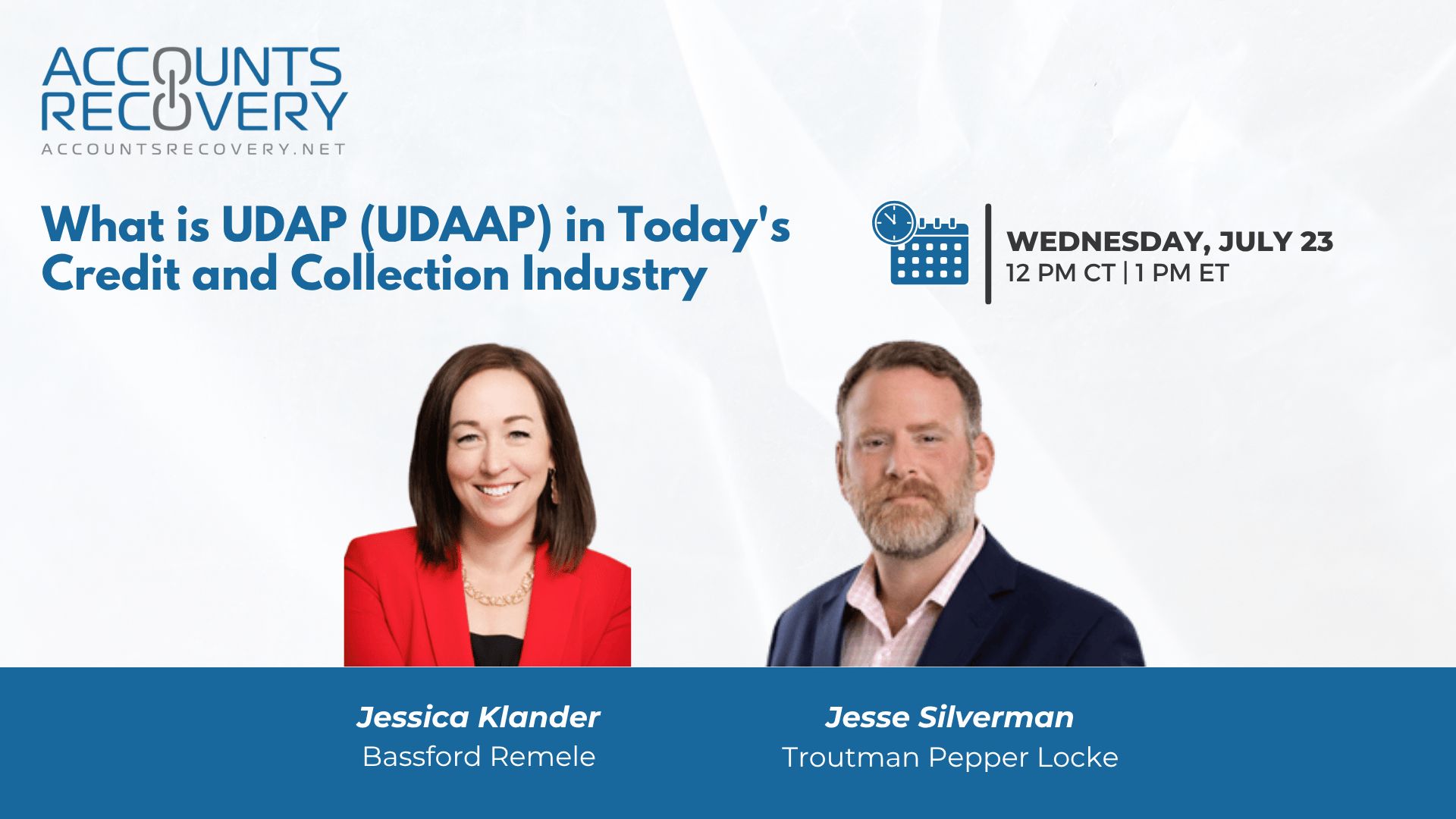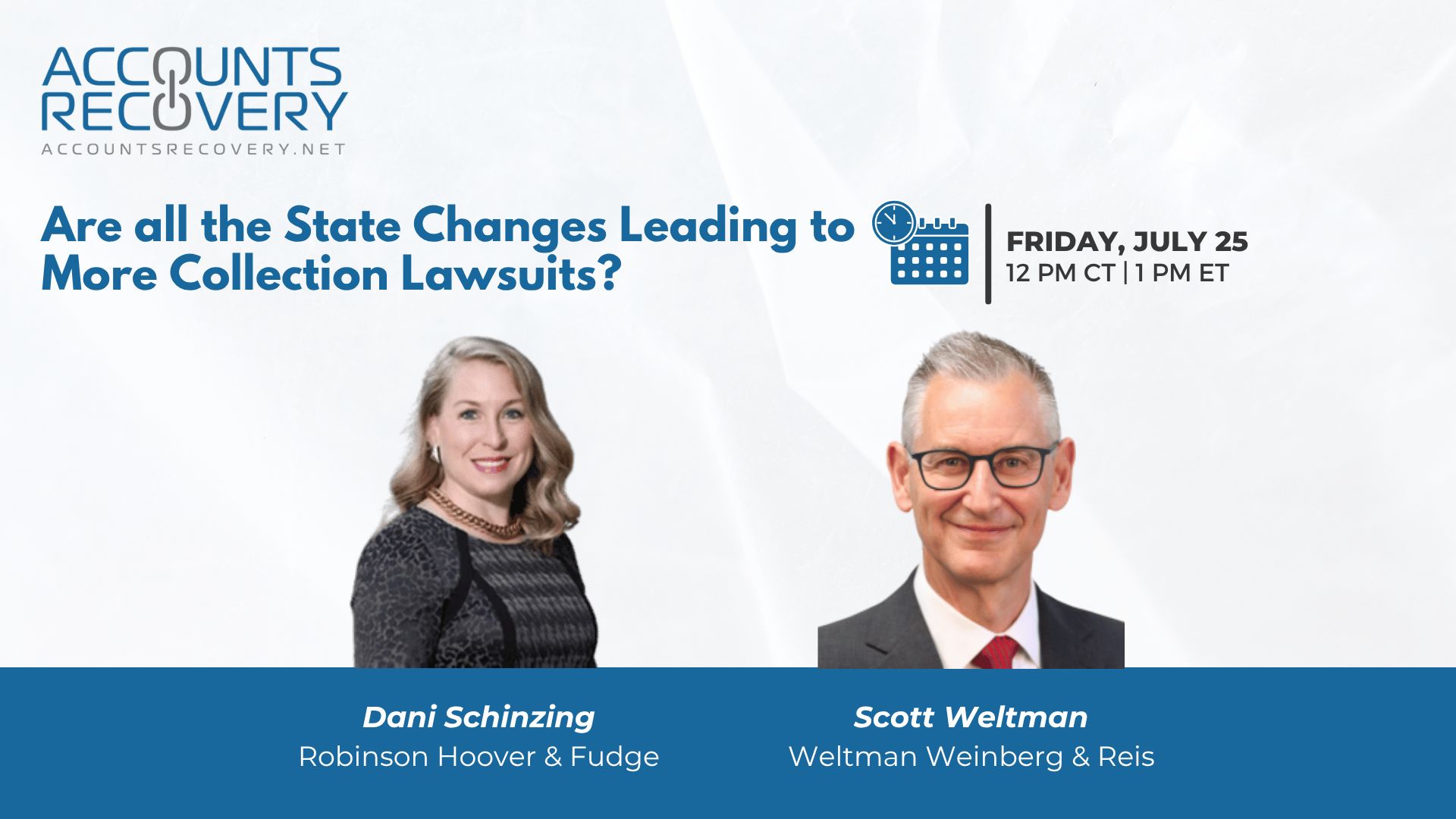- AccountsRecovery Daily Digest
- Posts
- Daily Digest - July 21, 2025
Daily Digest - July 21, 2025
Brought to you by: TCN | By Mike Gibb

🥳 🎂 Happy Birthday to Mark Westrum of Radius Global Solutions, Andrew Worrall of Phillips & Cohen Associates, Christi Crothers of FedChex Recovery, and Michael Grammer of Resurgent Capital Services. Happy belated Birthday to: Mary Prendergast of IC System (July 20), Ted Miller of Radius Global Solutions (July 19), Tonya Saldua of United Collection Bureau (July 19), Kristen Marshall of Tucker, Albin and Associates (July 19), and Paul Jozefak of Receeve/InDebted (July 19).
🎉 🙌 Congratulations to Matthew McDonnell, who was promoted to Client Audit Manager at DCM Services, and Michael Meisel, who was hired as Director of Recoveries at Specialty Capital.
📆 Going to ACA this week in Louisville? Want to sit down and chat? Let me know!
More than 35 speakers have confirmed for ComplianceCon. Check out who will be speaking and more at Compliance-Con.com.
FDCPA Does Not Mandate Email Communication, Judge Rules
In a case that was defended by Mitch Williamson of Barron & Newburger, a District Court judge in New Jersey has granted a defendant’s motion to dismiss a Fair Debt Collection Practices Act lawsuit after the defendant mailed validation inquiry back to the plaintiff instead of emailing it as the plaintiff requested.

A MESSAGE FROM TCN
TODAY‘S WEBINAR
UPCOMING WEBINARS
CFPB Keeps State-Notification Rules in Place
The Consumer Financial Protection Bureau has withdrawn its May 2025 direct-final rule that would have scrapped the procedures requiring state regulators and attorneys general to alert the Bureau and other regulators at least 10 days before they file an enforcement action under the Consumer Financial Protection Act. In a Federal Register notice slated for publication today, the Bureau said the rescission is off the table after it received “significant adverse comments.”
Mass. Senate Passes Judgment Collection Bill
A bill has passed unanimously in the Massachusetts Senate that would create new restrictions and limitations on the collection of consumer debts in the state.
Compliance Digest – July 21
Rulings from a handful of different judges across the state, plus a state regulator weighing in on how a company in the credit and collection industry is using artificial intelligence are what experts are weighing in on this week, providing you with important context and perspective to make sure you are making the best decisions possible. Thanks to Leslie Bender, David Schultz, Crystal Duplay, Jacob Bach, Issa Moe, and Kim Phan.
This series is sponsored by Bedard Law Group
WORTH NOTING: An important decision for a lot of us -- knowing when it's time to take over your parents' finances ... Artificial intelligence is still at the bottom rung of the corporate ladder - companies tend to treat the tool like an intern ... For those of us that spend a lot of our day sitting, here is a list of the best office chairs ... The order in which you eat your foods could play a role in helping lose weight and maintaining your blood sugar ... What to drink, and what to avoid, when you want to stay hydrated ... The most expensive spots in America for those who are retired ... The secret to helping you achieve your long-term goals ... The keys to a good strategic partnership that can future-proof your business.
Music Monday, part I
Music Monday, Part II
Webinar Recap: Settle or Defend-Ripped From the Headlines

In a fast-paced and candid discussion, a panel of veteran defense attorneys—Lauren Burnette (Messer Strickler), Patrick Newman (Bassford Remele), and Justin Penn (Hinshaw & Culbertson) tackled a critical decision point facing every company in the credit and collection industry: When should you fight a lawsuit, and when should you settle?
Using real-world case examples, including recent FDCPA and FCRA lawsuits, the panelists walked through the legal, strategic, and economic considerations that should inform every decision to litigate or resolve a case. The group also explored the role of Rule 12 motions to dismiss, Rule 56 summary judgment motions, and the rarely successful—but still valuable—bona fide error defense. They emphasized that while fighting back can be important, especially when defending business-critical practices or deterring serial litigants, doing so without a strategy or understanding of downstream risks can backfire.
🧠 Key Takeaways:
Motion to Dismiss ≠ Easy Win: Courts must accept all well-pleaded facts as true, even if they’re “dirty, dirty lies,” as Patrick Newman put it. Many FDCPA complaints are written specifically to survive dismissal. Consider whether the facts allow for an early exit before filing.
Think Before You Appeal: Appeals can shape industry-wide precedent. Only pursue them when the record is well-developed and the standard of review is favorable. A bad appellate ruling can have ripple effects far beyond your case.
Bona Fide Error Needs Substance: Asserting this FDCPA defense requires detailed evidence of reasonable procedures and rare errors. Generic policies and unsupported affidavits are unlikely to win on summary judgment.
The bottom line: Every lawsuit is unique. Strategic thinking, early cost-benefit analysis, and solid legal counsel are essential when deciding to settle or defend.
💡 For more events like this, visit accountrecovery.net or register for ComplianceCon—the industry’s only event devoted exclusively to compliance—this September in Nashville.
The Daily Digest is sponsored by TCN







